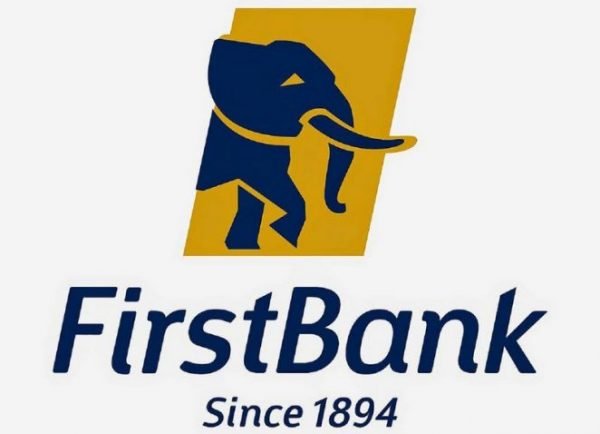Economy
CBN Creates N50b Credit Facility to Cushion COVID-19 Effects

By Tony Obiechina, Abuja
The Central Bank of Nigeria (CBN), has announced the creation of N50 billion credit facility to cushion the effect of the adverse economic impact of the COVID-9 otherwise known as Coronavirus pandemic on households, Small and Medium Enterprises (SMEs) in the country.
The Apex Bank also announced a reduction from 9 to 5 percent interest rates on all applicable CBN intervention facilities per annum for one year with effect from March, 1, 2020.
CBN Governor, Mr Godwin Emefiele who announced these measures while addressing a press conference at the bank’s headquarters on Monday in Abuja said that they became necessary because of the adverse consequences the coronavirus pandemic is having for both the global and the Nigerian economies.
He said, “the Central Bank in furtherance of its financial stability mandate is committed to providing support for affected households, businesses, regulated financial institutions and other stakeholders in order to cushion adverse economic impact of this pandemic”.
Emefiele explained that the credit facility would be established through the NIRSAL Microfinance Bank, for institutions that have been “particularly hard hit by COVID-19, including but not limited to hoteliers, airlines, healthcare merchants”.
The Governor also stated that all CBN intervention facilities have been granted a further moratorium of one year on all principal repayments, effective March 1, 2020.
“This means that any intervention loans currently under moratorium are hereby granted additional period of one year. Accordingly, participating financial institutions are hereby directed to provide new amortization schedules for all beneficiaries”, he added.
The Governor also announced that in order to meet potential increase in demand for Healthcare services and products, the CBN has opened for its intervention facilities, loans to Pharmaceutical companies intending to expand or open their drug manufacturing plants in Nigeria, as well as to Hospital and Healthcare practitioners who intend to expand/build the Health facilities to first class centres.
This, according to him, is in addition to growing the size of existing interventions to the Agricultural and Manufacturing sectors in Nigeria.
He also stated that the CBN has granted all Deposit Money Banks leave to consider temporary and time-limited restructuring of the tenor and loan terms for businesses and households most affected by the outbreat of Covid-19 particularly Oil & Gas, Agriculture, and manufacturing.
“The CBN would work closely with DMBs to ensure that the use of this forpearance is targeted, transparent and temporary, whilst maintaining individual DMB’s financial strength and overall financial stability of the system”, he added.
Speaking further, Emefiele said, “in view of the success of the LDR Policy in growing credit to the economy and reducing interest rates, the CBN would further support industry funding levels to maintain DMBs capacity to direct credit to individuals, households, and businesses.
“We will also consider additional incentives to encourage extension of longer tenured credit facilities. DMBs are encouraged to continue to build capital buffers in order to improve resilience of the sector.
“The Bank stands ready to provide liquidity backstops as and when reguired in view of its role as Banker to the Federal Government and lender of last resort. The CBN shall continue to monitor developments and will issue further updates as may be appropriate”, he said.
Economy
CBN Takes Steps to Strengthen Banking Sector, Issues Routine Transitional Guidance

The Central Bank of Nigeria (CBN), has introduced time-bound measures for some banks still completing their transition from the temporary regulatory support provided in response to the economic impact of the COVID-19 pandemic.
According to a statement issued by Mrs Hakama Sidi-Ali, , CBN’s Acting Director, Corporate Communications Department , this is part of its ongoing efforts to strengthen the banking system.
Sidi-Ali said that the step was part of the CBN’s broader, sequenced strategy to implement the
recapitalisation programme announced in 2023.
She said that the programme, designed to align
with Nigeria’s long-term growth ambitions, had already led to significant capital inflows and balance sheet strengthening across the sector.
“Most banks have either completed or are on track to meet the new capital requirements well before the final implementation deadline of March 31, 2026.
“The measures apply only to a limited number of banks. These include temporary restrictions on capital distributions, such as dividends and bonuses to support retention of internally generated funds and bolster capital adequacy.
“All affected banks have been formally notified and remain under close supervisory engagement ” she said.
She said that to support a smooth transition, the CBN had allowed limited, time-bound flexibility
within the capital framework, consistent with international regulatory norms.
“Nigeria generally maintains Risk-Based Capital requirements that are significantly more stringent than the global Basel III minimums.
“These adjustments reflect a well-established supervisory process consistent with global norms. Regulators in the U.S., Europe, and other major markets have implemented similar transitional measures as part of post-crisis reform efforts.
“The CBN remains fully committed to continuous engagement with stakeholders throughout this period via the Bankers’ Committee, the Body of Bank CEOs, and other industry forums,” she said.
She said that the goal to ensure a transparent, Nigeria’s banking sector remained fundamentally strong.
According to her, these measures are neither
unusual nor cause for concern.
She said that they were a continuation of the orderly and deliberate implementation of reforms already underway.
She said that the CBN would continue to take all
necessary actions to safeguard the sector’s stability and ensure a robust, resilient financial ecosystem that supports sustainable economic growth. (NAN)
Economy
Cybercrime: First Bank Invests N15bn to Protect Systems From hackers in 5 months –CEO

First Bank HoldCo Plc says it has spent more than N15 billion to protect its systems against criminals between January and June.
Olusegun Alebiosu, the Chief Executive Officer (CEO), First Bank HoldCo Plc, said this in an interview in Abuja on Wednesday.
Alebiosu, who spoke on the sideline of a two-day National Seminar on Banking and Allied Matters for Judges, said the Bank had spent three N3 billion in June to protect its systems.
He said the bank had the best cyber security framework in the country, hence the investment.
The CEO who was speaking on the increasing number of attacks by cybercriminals, especially on banks’ systems, assured First Bank customers of the safety of their monies.
Alebiosu frowned at the rate at which some citizens were involved in cybercrimes, saying the country must move fast to curb their excesses.
”No customer would lose their money in First Bank unjustly.
”If their money is missing in First Bank, First Bank will pay back.
”Before I joined First Bank, I have an account with First Bank.
”One of the reasons why I had an account with First Bank was, I said to myself, if my money is missing, it is the only bank I know I will collect my money without any excuses, ” he said.
Reacting to some customers’ complaints on the delay by the bank to handle cases of fraudulent transactions, Alebiosu said the bank must conduct investigations involving different stakeholders.
The CEO said the delay was caused by the collaboration between the stakeholders involving security agencies and banks where the money was transferred to determine the realities about the cases.
He urged customers to tread carefully in handling and releasing their financial information.
”Customers themselves, most times, also compromise their own security details; I have seen a lot of people that give their cards to somebody to help them withdraw money from their ATM.
”They compromise their password so, when something happens and you say, my money disappeared, you forget the day you gave your card to someone else and they can use that to transfer your money.
”Some people compromise even their own ID on the system carelessly, some give their Bank Verification Number (BVN) and they use it against them.
”Now, why does it take time for the bank to react, everything you give to the bank, the bank has to investigate it.
”The money might have gone to other banks so, you start tracking from other banks but
Sometimes customers are impatient,” he said.
On frauds allegedly perpetrated by staff, he said the bank had internal employee fraud software, that monitors activities of employees on the system.
According to him, if you know how many of our staff we sack on a monthly basis, you won’t believe me.
”So if there are triggers, people will be involved. It is for us to run faster than them, and see how we can help to stop these kinds of things in our system but wherever we see it, we deal with it decisively, ” Alebiosu said.
He said that various stakeholders including the banks, law enforcement agencies and the judiciary had a role to play in curbing cybercrimes. (NAN)
Economy
GTCO Begins Deduction of USSD Fee From Airtime Balance

Guaranty Trust Holding Company (GTCO), says it will begin the deduction of Unstructured Supplementary Service Data (USSD fee from the airtime balance of its customers from June 18.
The bank in a message to its customers on Wednesday, said the N6.98 fee would no longer be deducted from customers’ bank account balance.
”Dear Customer, please be informed that effective June, 18, the N6.
98 USSD fee will be deducted from your airtime balance, no longer from your bank account”.The Nigerian Communications Commission (NCC) had directed deposit money banks (DMBs) to stop deducting charges for USSD transactions directly from customers’ accounts. (NAN)
























